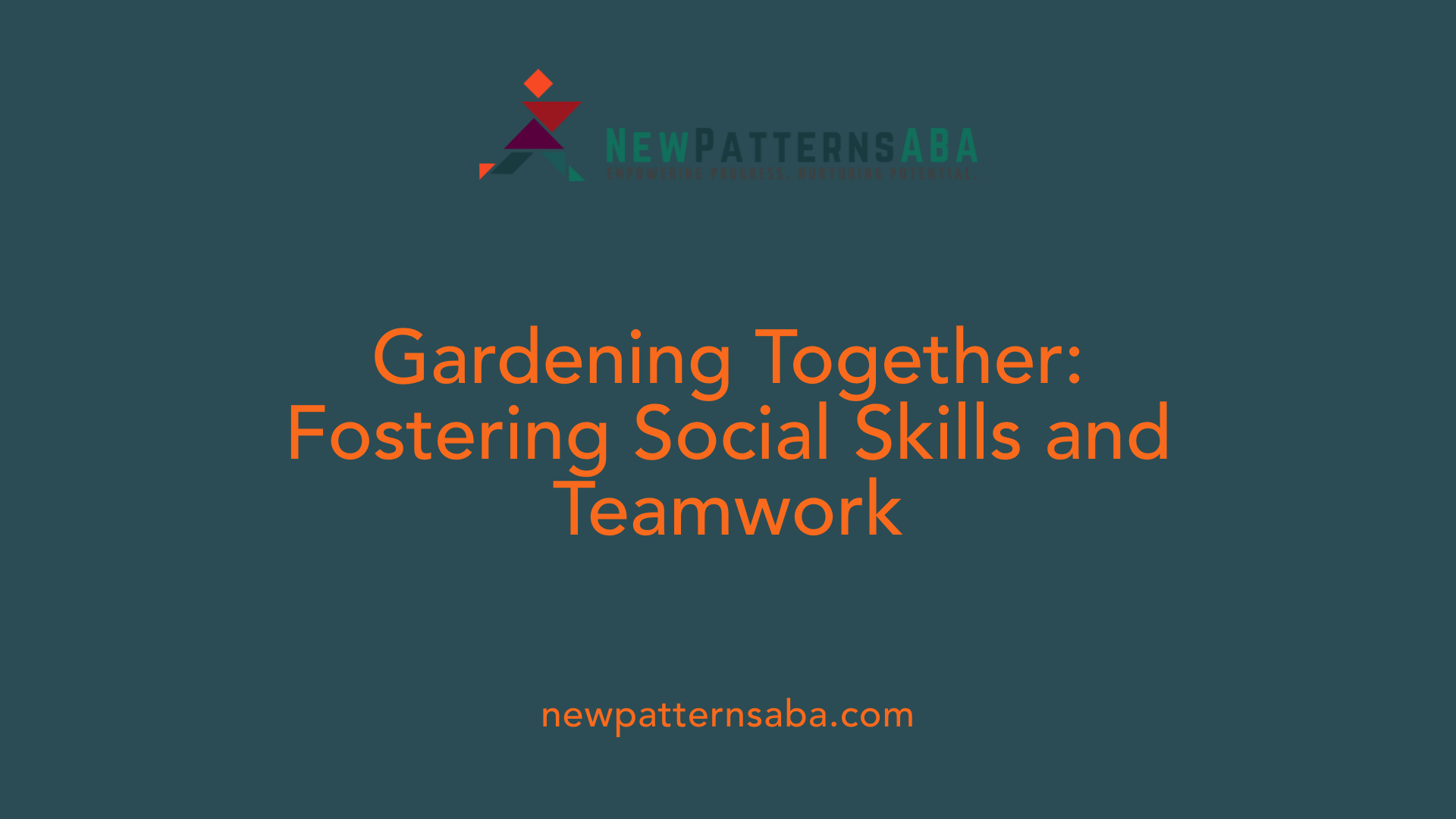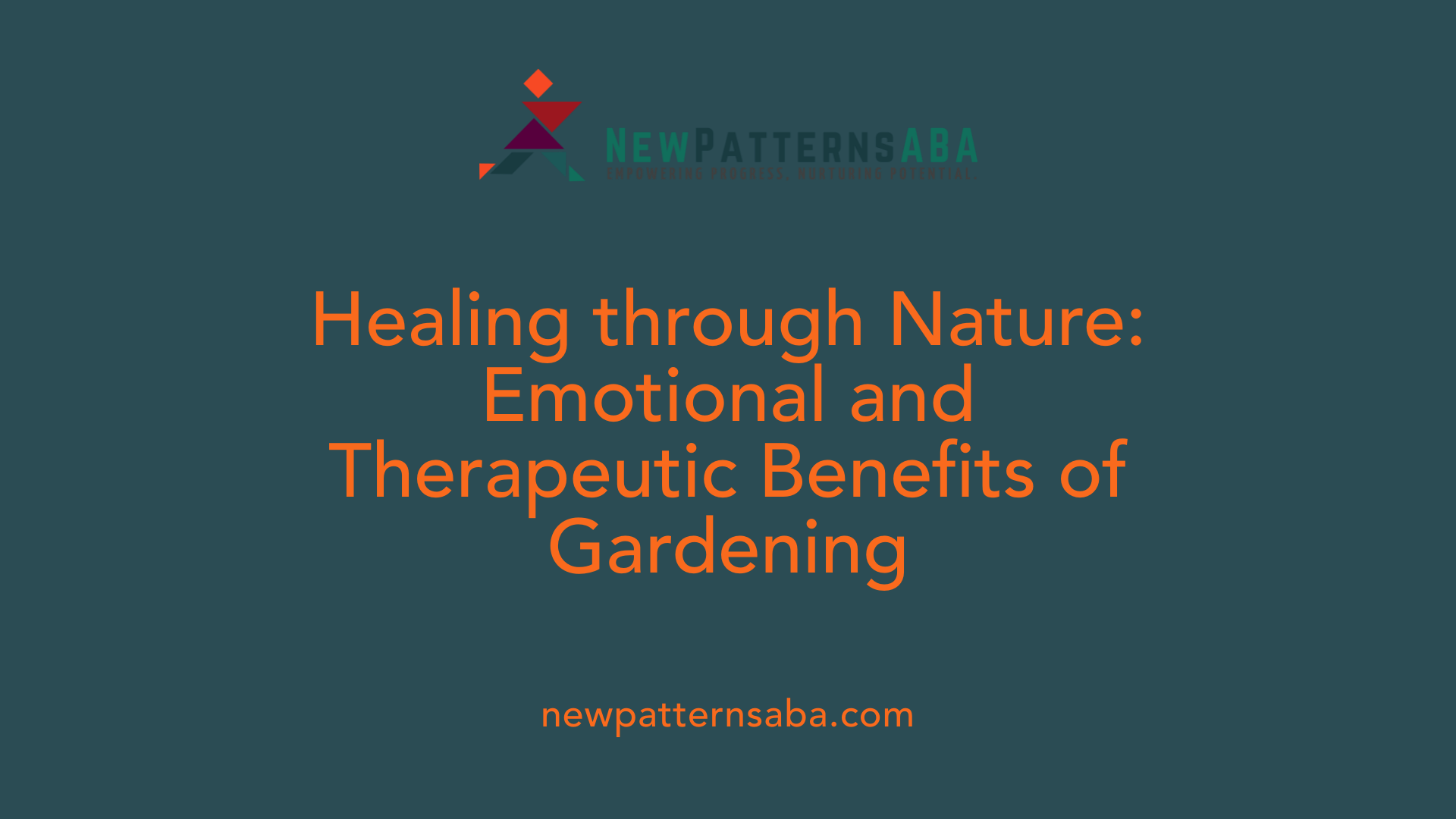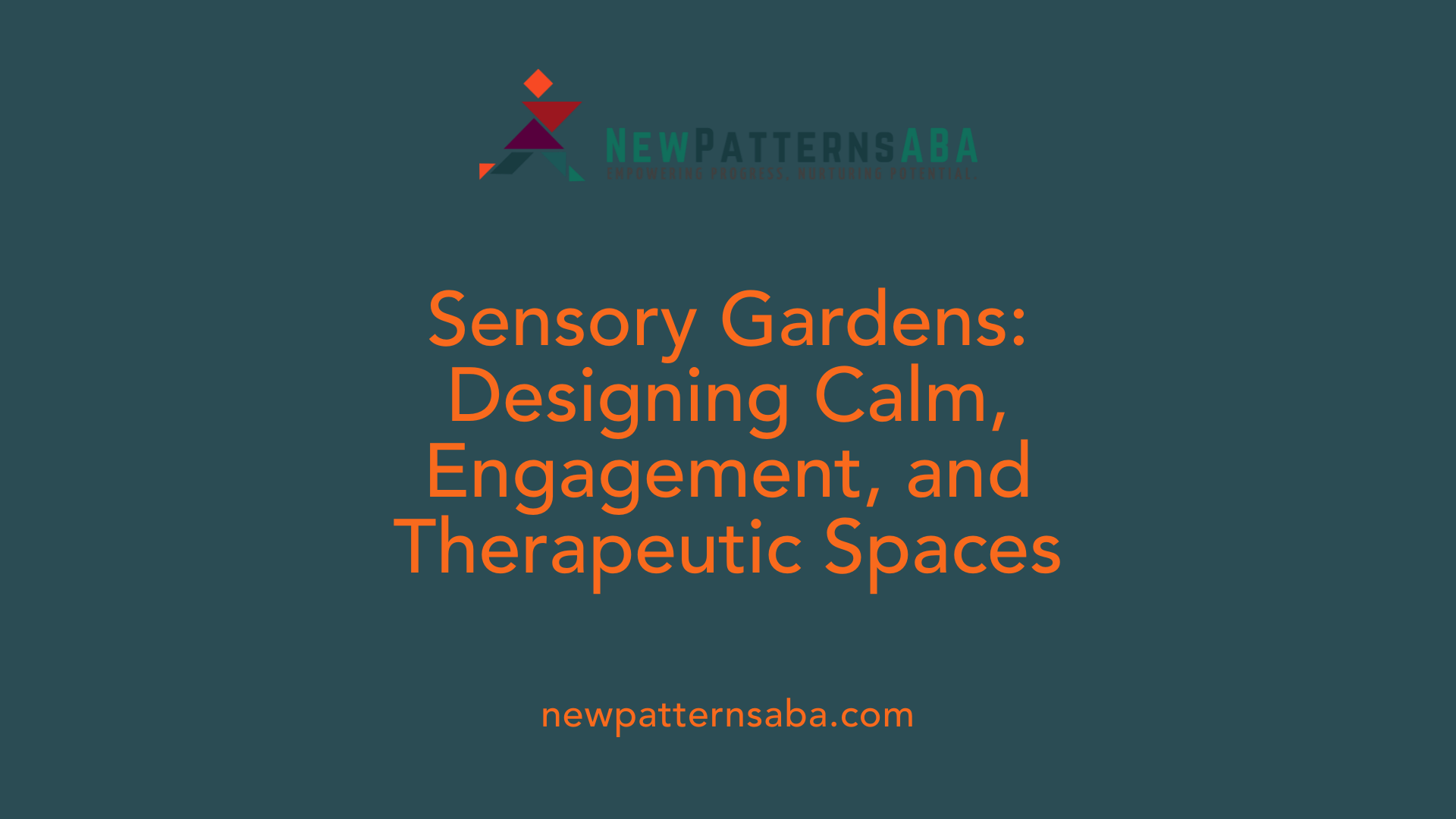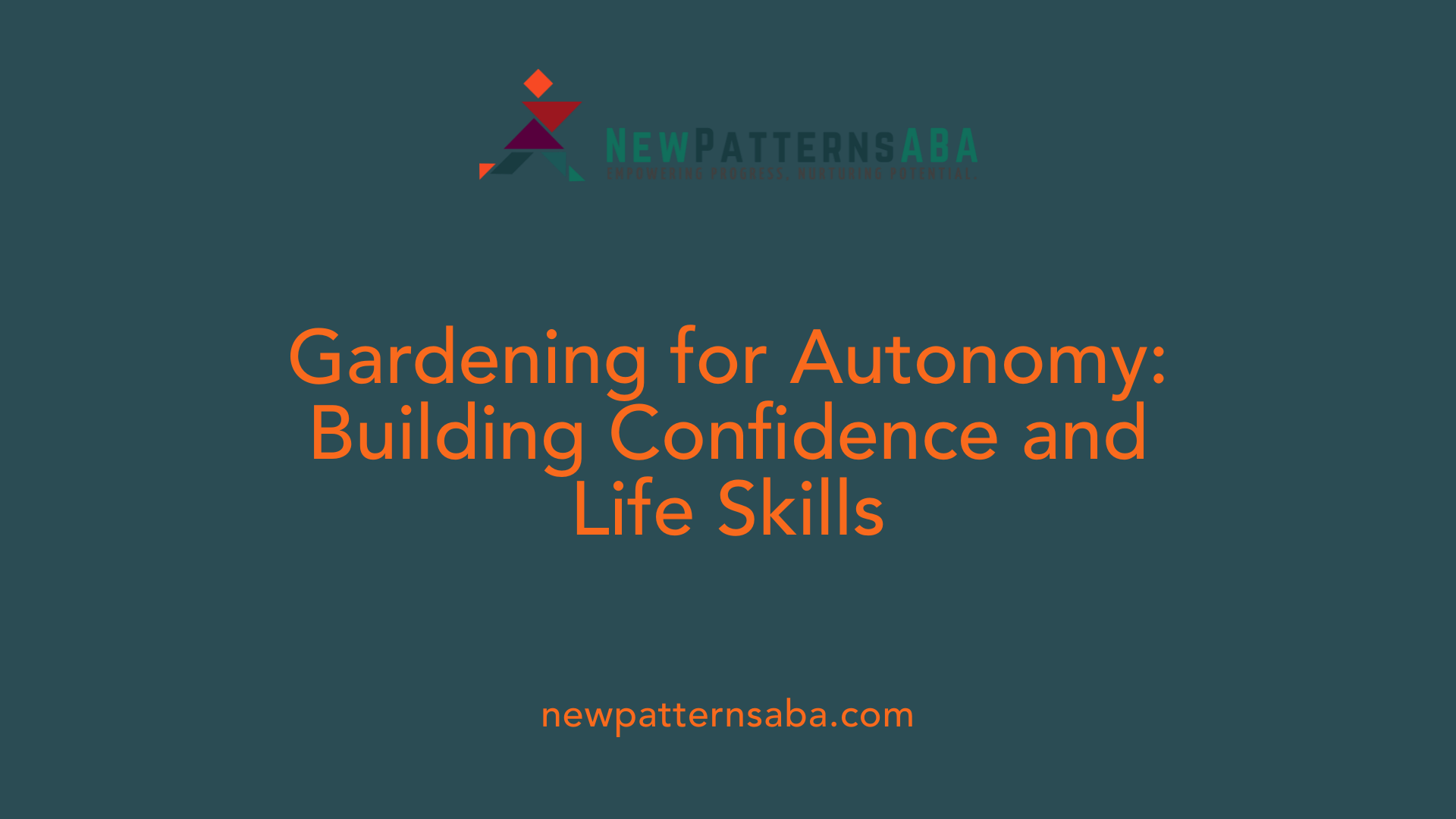Embracing Nature as a Catalyst for Autism Socialization
Gardening clubs and horticultural therapy have emerged as powerful tools for enhancing socialization, emotional well-being, and cognitive development among individuals with autism. These green spaces provide more than just a connection to nature; they serve as dynamic environments where autistic individuals can develop vital life skills, foster social bonds, and experience therapeutic benefits. This article explores the multifaceted advantages of gardening clubs for autism, highlighting how engaging with plants and nature can transform lives by supporting social skills, emotional regulation, and overall growth.
Educational Benefits of Gardening for Children with Autism

What are the educational benefits of gardening for children with autism?
Gardening provides a wealth of learning opportunities for children with autism. It creates a structured and sensory-rich environment that stimulates various senses and promotes development across multiple domains.
Through engaging activities such as planting seeds, watering plants, and harvesting crops, children develop fine motor skills and improve hand-eye coordination. These tasks require precise movements and can help strengthen muscle control. Additionally, gardening encourages patience, as children learn to care for plants over time and witness their growth, fostering a sense of responsibility and persistence.
Beyond motor development, gardening serves as an excellent platform for teaching children about nature and the environment. They gain knowledge about plant life cycles, ecosystems, and the importance of biodiversity. This understanding cultivates curiosity and ecological awareness.
Social and communication skills are also enhanced through gardening. Children often participate in group activities, requiring teamwork, sharing tools, following instructions, and communicating their needs or observations. These interactions promote cooperation and social engagement, vital skills for personal development.
Furthermore, the calming and predictable routines within gardening activities help reduce anxiety and support emotional regulation. The natural setting's stability and sensory engagement can have a soothing effect, helping children manage sensory overload and foster relaxation.
Overall, gardening acts as a multifaceted educational tool. It empowers children with autism to learn about the world, develop essential skills, and build confidence in a supportive, nurturing environment.
The Appeal and Benefits of Gardening for Autistic Individuals
Why do many autistic individuals find gardening appealing and beneficial?
Gardening offers a calming, sensory-rich environment that can be particularly soothing for autistic individuals. The vibrant colors, diverse textures, fragrant smells, and natural sounds create a multisensory experience that helps regulate sensory processing issues often faced by those on the autism spectrum. This sensory engagement can significantly reduce feelings of overstimulation and promote emotional balance.
Furthermore, the structured nature of gardening activities is highly appealing. Tasks like planting seeds, watering plants, or weeding follow predictable routines, providing a sense of stability and control. This structure can diminish anxiety by establishing clear expectations and consistency, helping individuals feel more secure and confident.
Gardening also serves as an excellent avenue for skill development. It helps improve fine motor skills through activities such as handling small tools and planting, while gross motor skills are enhanced by larger movements involved in digging or watering. The process of caring for plants teaches patience, responsibility, and the importance of following multi-step instructions.
Importantly, participation in gardening encourages independence and self-esteem. Watching plants grow as a direct result of one’s efforts fosters a sense of achievement. It can also serve as a social activity, enabling teamwork and communication as individuals work together in shared gardening projects.
Overall, gardening is a versatile activity that combines therapeutic, educational, and sensory elements. It nurtures emotional well-being, builds practical skills, and sparks social engagement—making it a highly effective tool to support the growth and development of autistic individuals.
The Role of Gardening in Developing Social Skills

How does gardening promote social skills development in individuals with autism?
Gardening provides a unique platform for individuals with autism to develop their social skills through shared, purposeful activities. When children and adults work together on projects like planting, watering, or harvesting, they engage in collaboration that naturally encourages communication and teamwork.
These activities foster opportunities for both expressive and receptive communication, helping individuals learn how to exchange ideas, ask for help, and offer assistance in a supportive environment. The sensory aspects of gardening, such as feeling different textures, noticing colors, or smelling herbs, also help regulate sensory processing, which can reduce feelings of overwhelm and make social engagement easier.
Participating in group gardening initiatives or community projects builds confidence by providing tangible achievements and a sense of belonging. It teaches patience as they wait for plants to grow and provides fulfillment when they see the results of their efforts.
Overall, gardening acts as an inclusive and healing activity that enhances social interaction, emotional connectivity, and interpersonal understanding, making it particularly beneficial for individuals with autism to build essential social skills.
Emotional and Therapeutic Advantages of Gardening

What emotional and therapeutic benefits can individuals with autism gain from gardening?
Gardening offers a host of emotional and therapeutic benefits for autistic individuals. It helps reduce anxiety and promotes emotional regulation by providing a calm, predictable environment where they can engage in repetitive, structured tasks. This sense of stability can decrease sensory overload and defensiveness, common challenges among autistic people.
The sensory-rich activities involved in gardening—such as feeling different textures, smelling various herbs and flowers, and listening to natural sounds—support sensory integration and mindfulness. These experiences encourage individuals to stay present, fostering a mindful state that can help manage stress and agitation.
Participating in gardening builds self-esteem and confidence as individuals see their plants grow and learn new skills. The feeling of accomplishment gained from caring for plants nurtures a sense of pride and self-worth.
Engaging with nature also fosters curiosity, exploration, and a connection to the natural world. These activities can serve as calming retreats, offering a peaceful space for reflection and self-regulation.
Moreover, gardening activities often involve collaboration and teamwork, which enhance social skills and communication. Whether planting together, watering, or harvesting, these shared experiences promote social bonding and collaborative problem-solving.
Overall, gardening serves as a versatile therapeutic practice that supports emotional well-being, sensory development, and social engagement for individuals on the autism spectrum, helping them build resilience and improve quality of life.
Supporting Sensory and Cognitive Development Through Gardening
How does gardening support sensory integration and cognitive development in autistic individuals?
Gardening offers a rich multisensory environment that directly benefits individuals with autism by engaging multiple senses such as sight, sound, smell, touch, and taste. This sensory immersion helps improve their ability to process and integrate sensory information, which can often be challenging.
Features like water walls, textured plants, and aromatic herbs serve as calming tools tailored to individual sensitivities. These elements not only promote relaxation but also provide sensory enrichment that can help reduce sensory overload and anxiety.
Hands-on gardening activities—such as planting seeds, watering plants, and exploring different textures—encourage focus, planning, and problem-solving skills. These tasks foster cognitive development by requiring individuals to follow multi-step instructions, anticipate outcomes, and adapt their actions based on feedback.
The thoughtful design of sensory gardens—incorporating clear pathways, raised beds, and designated sensory zones—helps individuals navigate their environment comfortably. Such structured spaces reduce sensory challenges and build confidence in exploration.
Research supports these benefits, showing that interaction with nature through horticultural and sensory gardens can lead to significant improvements in social and emotional wellbeing. For children and youth with autism, engaging with these gardens can enhance cognitive functions, emotional regulation, and social skills, making gardening a valuable therapeutic activity.
The Significance of Sensory Gardens and Therapeutic Design

What is the role of sensory gardens in supporting children with autism?
Sensory gardens are specially designed outdoor spaces that support children with autism by providing a calming and engaging environment tailored to their sensory needs. These gardens aim to stimulate and regulate multiple senses—such as sight, smell, touch, sound, and proprioception—helping children process sensory information more effectively. The diverse features of sensory gardens, including water walls, textured plants, scented herbs, and soundscapes, promote sensory integration and offer a safe space for relaxation and exploration.
Features like tactile materials and calming zones are created to reduce sensory overload and anxiety, fostering emotional well-being. The gardens also encourage social interaction and motor skills development through activities like playing with water elements or participating in sensory exercises. Importantly, sensory gardens serve as outdoor educational and therapeutic settings that building confidence and independence.
Design elements focused on safety, predictability, and accessibility are integral to these gardens. Clear sightlines, gentle slopes, and inclusive pathways make them suitable for all users, including those with mobility challenges.
Calming design elements
A successful sensory garden incorporates calming features such as soft lighting, gentle water sounds, and muted color palettes. These elements create a peaceful environment that can help children with autism self-regulate their emotions and reduce stress.
Safe environments with predictable routines
Designs include designated zones with consistent features and routines, helping children feel secure. Predictable layouts and quiet corners ensure comfort and minimize unpredictability, which is vital for emotional regulation.
Inclusion and accessibility features
Incorporating accessible pathways, raised planting beds, sensory stations at different heights, and inclusive seating ensures that children with various needs can fully participate and benefit from the space.
Examples of successful sensory garden projects
The Sensory Arts Garden at The Els Center of Excellence in Florida exemplifies effective design. It connects visitors with nature, offers wildlife interactions, and includes quiet retreats and scented plantings to support emotional and sensory health.
Impact on emotional and social wellbeing
Sensory gardens have shown to improve mood, reduce anxiety, and foster social skills among children with autism. The sensory-rich environment encourages interaction, exploration, and cooperation, contributing significantly to emotional resilience and social confidence.
| Feature | Purpose | Additional Details |
|---|---|---|
| Water elements | Calming sounds and tactile engagement | Water walls, bubbling fountains to soothe and stimulate senses |
| Tactile plants | Sensory exploration | Textured leaves, bark, and grasses for touch experiences |
| Scented herbs | Olfactory stimulation | Lavender, mint, and basil to activate smell senses |
| Quiet zones | Emotional regulation | Spaces for rest and reflection |
| Safe transition spaces | Reduce anxiety | Clear pathways and boundaries for smooth movement |
Overall, sensory gardens are vital spaces that support the development of emotional regulation, social skills, and sensory processing for children with autism. Their thoughtful design promotes independence, well-being, and meaningful connection with nature.
Gardening as a Pathway to Independence and Personal Growth

How can gardening be used as a tool for autism socialization and well-being?
Gardening serves as an effective activity for promoting socialization and emotional health among individuals with autism. The structured and sensory-rich environment of a garden provides a safe space where individuals can learn, explore, and connect with others.
Participating in gardening fosters teamwork and communication skills as individuals work together to plant, water, and care for plants. These shared activities encourage social interaction and help build relationships. The natural sensory stimuli—such as the scent of herbs, the texture of soil, and the sight of growing plants—can soothe sensory overload and improve sensory processing.
Gardening also promotes emotional regulation by offering calming routines and tangible achievements. The experience of nurturing plants nurtures patience, responsibility, and problem-solving abilities. Research, including horticultural therapy studies, highlights how these activities can enhance social intelligence, independence, and overall mental well-being. As a result, gardening provides not only a therapeutic outlet but also a pathway to developing confidence and vital social skills.
Nurturing Growth and Well-being Through the Power of Gardening
Incorporating gardening clubs and horticultural therapy into programs for individuals with autism offers profound benefits that go beyond basic skill development. These green spaces serve as inclusive environments where sensory, emotional, social, and cognitive growth can flourish naturally. From fostering communication and teamwork to promoting emotional regulation and independence, the benefits are comprehensive and compelling. As research continues to highlight the therapeutic value of nature-based activities, embracing gardening as a core component of autism support programs can pave the way for healthier, more connected, and confident individuals. Ultimately, nurturing a garden is also a metaphor for nurturing human potential—one seed at a time.
References
- Growth in the Garden: A Therapeutic and Educational Tool for ...
- Horticultural Therapy Activities can Reduce Stress and Enhance the ...
- The Remarkable Ways Sensory Gardens Can Help People With ...
- The Benefits of Plant and Animal Caretaking for Individuals With ...
- Designing Garden Spaces for Youth with Autism Spectrum Disorder
- I'm harnessing the power of gardening to help autistic people
- The Benefits of Therapeutic Gardening in Horticultural Therapy for ...
- Gardening and Autism, a Match Made in Heaven - Legacy Farms
- Wellbeing benefits of gardening for children - RHS





